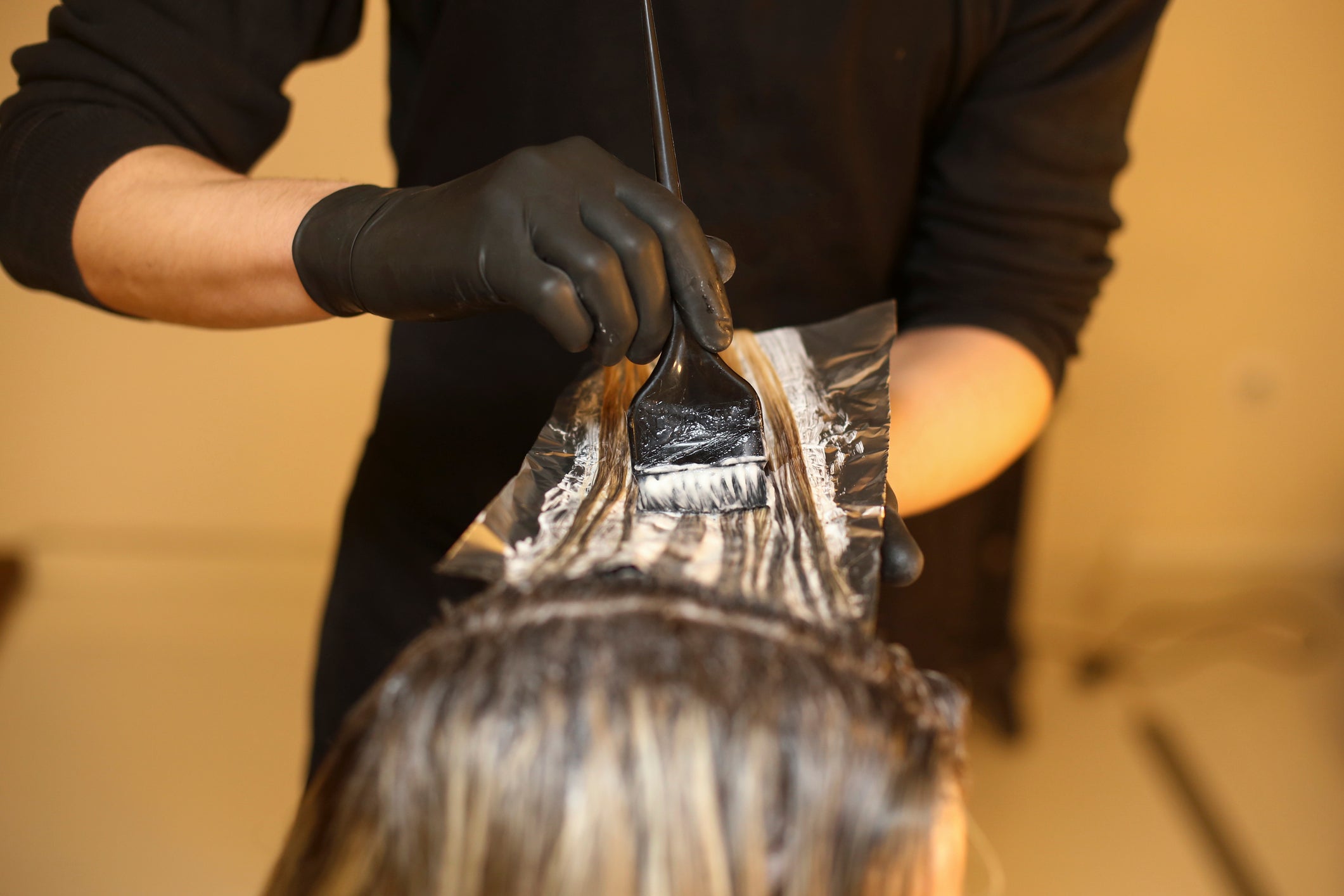Can coronavirus make you allergic to hair dye?
Hairdressers in the UK report clients having new allergic reactions after contracting Covid-19

Given how novel Covid-19 is, there’s still a lot about the illness that we don’t know, namely its long-term effects and how they differ between individuals.
One example of this that has been discussed in recent weeks is allergic reactions.
Since last year, hairdressers have been reporting instances of clients experiencing allergic reactions, such as rashes and burns, to hair dye after having tested positive for coronavirus.
As a result, The National Hair and Beauty Federation (NHBF), the trade body that represents hairdressers and beauticians, is advising hairdressers across the UK to always carry out patch tests at least 48 hours before using hair dye on their clients’ hair to avoid allergic reactions and possible legal action.
But why might hair dye cause allergic reactions for those who have had coronavirus? Here’s everything you need to know.
What kind of allergic reactions are people having to hair dye after contracting coronavirus?
Reports have been circulating since last winter that clients were experiencing allergic reactions to hair dye after contracting coronavirus.
However, a new report conducted by the BBC has found that the issue is ongoing, with clients reporting rashes and burns.
A woman named Gemma told the news outlet that she suffered a reaction to a patch test for the same hair dye she has been using for 10 years.
“The reaction is so severe,” she told the BBC. “My whole scalp, my face – I just can’t even imagine what would have happened to me.”
“I thought: ‘Oh it’s a little bit of an extra faff having to come into the salon, wait 48 hours when all I wanted to do was get my hair coloured’. However, thank goodness that she [the hairdresser] put that policy in place.
“I came along, had the patch test. The following day, I felt a really hot burning sensation behind my ear which progressively got worse to the point where it had taken layers of my skin from behind my ear.”
Gemma had recently recovered from a Covid-19 infection. Her hair salon said it had seen four other clients with the same issue since it began conducting compulsory patch tests for all clients.
If you’ve previously tested positive for coronavirus, does it mean you will have an allergic reaction to hair dye?
It’s not yet clear exactly why people who have previously had Covid-19 might experience an allergic reaction to hair dye.
However, researchers at Imperial College London are currently looking into why and how coronavirus might impact our immune system.
The NHBF has previously suggested that the reaction might be due to heightened skin sensitivity in people who have not had their hair dyed for a long period of time when the UK was in lockdown.
The NHS states that allergies occur when the body’s immune system reacts to a particular substance as though it’s harmful.
The health service adds that it’s not clear why this happens, but most people affected have a family history of allergies or have closely related conditions, such as asthma or eczema.
You can read more about allergies and how they impact people here.
What does the NHBF say?
A statement from Richard Lambert, chief executive, National Hair & Beauty Federation (NHBF), says:
“There is no scientific evidence to support the claim that having COVID alone increases an allergic reaction to hair colour or any other hair and beauty treatments. An allergic reaction can occur at any time due to a number of factors of which a compromised immune system is one.
“The NHBF industry protocol is to test every client every six months, even if the client has not changed their colour choice or service, but if clients change colour or shade, go to a new salon, or if hair and beauty professionals have any concerns we recommend testing at every appointment.
“This should be done at least 48 hours before the appointment for each separate toner and shade and if multiple products are used from different manufacturers. A good consultation process is essential so any recent illnesses or change in lifestyle can be discussed and taken into consideration.
“Obviously, there is the wider issue of people using home box dyes, for which they may not undertake an allergy test despite the manufacturer’s instructions to do so – and why the NHBF would always recommend that colour treatments are undertaken by a trained professional.”
Join our commenting forum
Join thought-provoking conversations, follow other Independent readers and see their replies
Comments
Bookmark popover
Removed from bookmarks